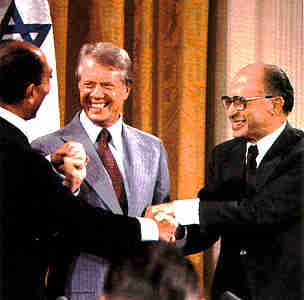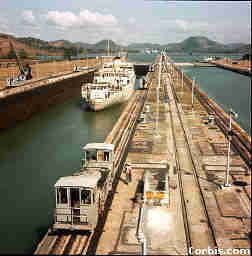|
We're going to take a brief look at some of the accomplishments during Jimmy Carter's administration.


THE CAMP DAVID ACCORDS
The Framework for Peace in the Middle East Muhammad Anwar al-Sadat, President of the Arab Republic of Egypt, and Menachem Begin, Prime Minister of Israel, met with Jimmy Carter, President of the United States of America, at Camp David from September 5 to September 17,1978

After twelve days of secret negotiations at Camp David, the Israeli-Egyptian negotiations were concluded by the signing at the White House of two agreements. The first dealt with the future of the Sinai and peace between Israel and Egypt, to be concluded within three months. The second was a framework agreement establishing a format for the conduct of negotiations for the establishment of an autonomy regime in the West Bank and Gaza. The Israel-Egypt agreement clearly defined the future relations between the two countries, all aspects of withdrawal from the Sinai, military arrangements in the peninsula such as demilitarization and limitations, as well as the supervision mechanism.

After four wars during 30 years, despite intensive human efforts, the Middle East, which is the cradle of civilization and the birthplace of three great religions, does not enjoy the blessings of peace. The people of the Middle East yearn for peace so that the vast human and natural resources of the region can be turned to the pursuits of peace and so that this area can become a model for coexistence and cooperation among nations.





